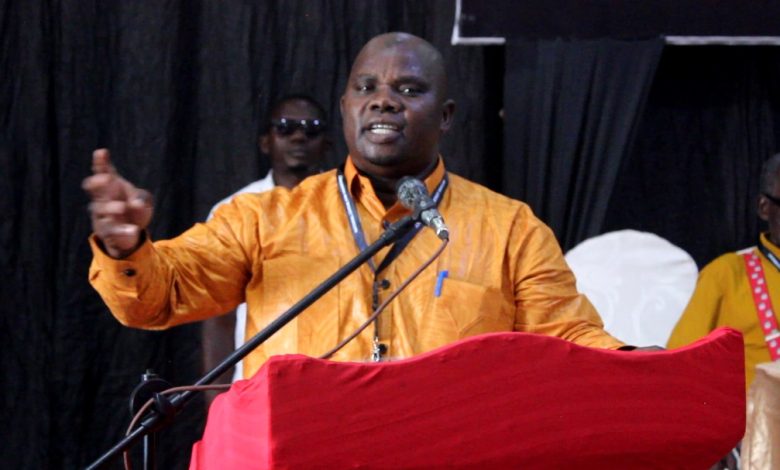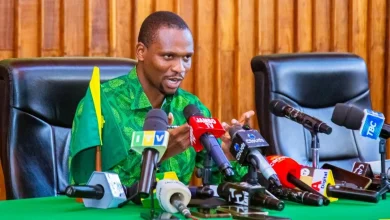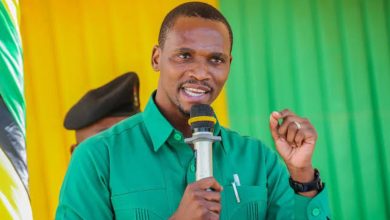KNOW YOUR CANDIDATE: Justice as a calling: The rise of presidential candidate Doyo

DAR ES SALAAM: IN the rolling hills of Handeni, Tanga, lies the small village of Misima, a place where tradition, simplicity and hard work define everyday life.
It was here, on New Year’s Day in 1974, that Doyo Hassan Doyo entered the world as the seventh of twelve children in a household that carried both the weight of leadership and the realities of rural survival.
His father, a seasoned member of Chama Cha Mapinduzi (CCM), had held various positions in local government.
His elder brother, Zakaria Mohamed Doyo, served as village chairman for 15 years before joining the Handeni District party’s National Executive Council. Politics seemed part of the family’s DNA. But for young Doyo, politics was not an immediate calling.
Instead, it was pain that steered him toward leadership. In 1983, when he was just a boy in Standard Two, an incident seared itself into his memory.
“I watched my mother being taken away in a government van, the infamous ‘Karandinga’, for failing to pay a development tax,” he recalls, his voice lowering as if reliving the humiliation. “She was only wrapped in a ‘khanga’. I was powerless, standing there as a child and it left a scar that never healed.”
That day, Mr Doyo says, shaped his destiny. It was not the comfort of a political household but the injustice against his mother that made him vow to one day stand for the voiceless.
Life did not hand him easy victories. After attending Misima Primary School, his academic results were not strong enough to secure a secondary school place.
Many might have given up, but Doyo persevered. In 1991, he enrolled at Masjidi Kuu Secondary in Sinza, Dar es Salaam, where he completed O-Level education. Later, he pursued a Diploma in Journalism at Dar es Salaam City College, Kimara.
By then, politics was no longer distant. At just 19, he had joined the Civic United Front (CUF), beginning what would become a three-decade-long political journey.
Within CUF, Doyo proved to be a determined organiser. In 1996, he was elected Handeni District Chairman, a position he held for 17 years.
Those who worked with him describe him as approachable, firm and driven by a desire to serve ordinary citizens.
But politics is rarely smooth. In January 2011, during a tense meeting in Zanzibar, CUF’s national executive council expelled him. It was a devastating moment, but Doyo chose resilience over resignation.
Together with like-minded colleagues, he founded the Alliance for Democratic Change (ADC). In this new home, he carried membership card number two and quickly rose through the ranks, serving as Northern Zone Patron, Director of Information and Publicity and eventually as Deputy Secretary General. By 2016, he had become Secretary General of ADC, a role he held until 2024.
In September 2024, he made yet another bold political move, joining the National League for Democracy (NLD). Within days, the party’s central committee unanimously endorsed him as Secretary General, citing his proven leadership and grassroots experience.
Today, Mr Doyo is not just a party leader but also NLD’s presidential candidate for the October General Election. For him, this moment is not about personal ambition but a continuation of the promise he made to himself as a boy in Misima, to fight for justice.
Those who know Doyo describe him as cheerful, open and approachable.
He is passionate about football, enjoys social interactions and is widely respected in his community for being scandal-free and down-to-earth.
Yet, his life is not defined by politics alone. He is also a successful businessman, particularly in mining and agriculture. Since the early 2000s, he has invested heavily in mineral extraction, owning 54 mining sites across Tanzania, ranging from iron in Dodoma to copper, dolomite, feldspar, quartz and gypsum. His ventures employ more than 400 young people.
In addition, he is a farmer, growing sisal in Handeni and cultivating various food crops. For him, farming and mining are not just sources of income, they are also platforms for job creation and empowerment, especially for young Tanzanians.
Mr Doyo speaks passionately about his political vision, his words carrying both conviction and urgency. He frames politics as a calling, not a career.
“It is not about power or personal gain,” he insists. “It is about being part of the solution for the ordinary Tanzanian.”
His NLD manifesto is built on six guiding pillars: Patriotism, justice, inclusive development, equality, accountability and governance grounded in ethics.
One of his strongest pledges is to end the burden of delivery fees for mothers. “How can we still charge 100,000/- for childbirth after 64 years of independence? That is unconscionable. Under NLD, maternal services will be free,” he declares.
He also vows to cut MPs’ salaries to 1.5m/- per month while significantly raising doctors’ pay to 12m/-. “Leadership must serve the people, not private interests,” he argues.
On economic policy, he promises to empower households to move beyond petty trade into sustainable, profitable ventures. He calls for local value addition to natural resources, aiming to clear national debts within five years through domestic revenues. He also highlights the blue economy, pledging to acquire a deep-sea fishing vessel and process fish locally for jobs and exports.
Education is another priority. He advocates free, practical education at all levels, equipping citizens with the skills for both employment and entrepreneurship. “Graduates must be job creators as well as job seekers,” he stresses.
Mr Doyo believes social justice is inseparable from national progress. He promises to reform legal systems so that justice becomes accessible, not something citizens have to “chase.” Within 90 days of taking office, he pledges to repeal the Anti-Terrorism Act, which he argues has been misused. “Our nation does not face real terrorism threats, but the law has been weaponised to intimidate. That must end,” he says.
As campaigns heat up ahead of the October election, Doyo Hassan Doyo emerges as a voice shaped by hardship, resilience and a fierce commitment to fairness.
ALSO READ: NLD pledges stable markets, subsidies for Manyara pigeon pea farmers
His journey from the dusty paths of Misima to the national stage carries both the pain of injustice and the hope of transformation.
To some, he is a businessman-politician. To others, a reformist. But to himself, he remains the boy who once saw his mother taken away in humiliation and who promised never to stop fighting for justice. “Every child of Tanzania deserves dignity, opportunity and hope,” he says, pausing before adding, “That is why I am here.”





